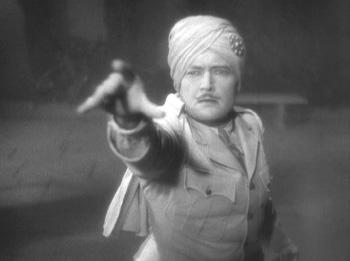THE FALL GUY: THE COMPLETE FIRST SEASON
Image B Sound B- Extras C-
“The Fall Guy Pilot,” “The Meek Shall Inherit Rhonda,” “The Rich Get Richer,” “That’s Right, We’re Bad,” “Colt’s Angels,” “The Human Torch,” “The Japanese Connection,” “No Way Out,” “License to Kill (Part 1),” “License to Kill (Part 2),” “Goin’ For It!,” “The Adventures of Ozzie and Harold,” “Soldiers of Misfortune,” “Ready, Aim… Die!,” “Ladies on the Ropes,” “The Snow Job,” “Guess Who’s Coming to Town,” “Child’s Play,” “Charlie,” “Three for the Road,” “The Silent Partner,” “Scavenger Hunt”
CHiPs: THE COMPLETE FIRST SEASON
Image C Sound B Extras D
“Pilot,” “Undertow,” “Dog Gone,” “Moving Violation,” “Career Day,” “Baby Food,” “Taking Its Toll,” “Green Thumb Burglar,” “Hustle,” “Highway Robbery,” “Name Your Price,” “Aweigh We Go,” “One Two Many,” “Rustling,” “Surf’s Up,” “Vintage ’54,” “Hitch-Hiking Hitch,” “Cry Wolf,” “Crash Diet,” “Rainy Day,” “Crack-Up,” “Flashback!”
by Ian Pugh In giving a modern-day look-see to a television series that stars a late-’70s/early-’80s icon as a Hollywood stuntman who improbably moonlights as a charming, violent bounty hunter, it seems only natural to start the discussion by lobbing a few Death Proof jokes in its general direction. Take the time to really sit down and watch “The Fall Guy”, however, and you’ll find that the complete honesty of its quest to grab the viewer’s attention just melts away your desire to be snarky. Lee Majors is the show’s anchor as Colton Seavers, the eponymous stuntman who spends his free time on assignment for a bail bondsman (Jo Ann Pflug) searching for folks who’ve skipped town before their court date, bringing his overeducated cousin (Douglas Barr, dead weight) and a stuntwoman-in-training (Heather Thomas, attractive dead weight) along for the ride. Although that premise gets bogged down in guns, fistfights, and doing crazy shit with whatever vehicles are available, Majors’s earnest performance offers a sense of levity to the proceedings, particularly once the character finally overcomes the traits ascribed to him by “The Fall Guy”‘s whiny country+western theme song, which complains about the stuntman’s inability to hold onto fame, money, or women. Indeed, as the series progresses, it becomes more interested in presenting Seavers as a conceptual mirror for the man who plays him, making Colt more of an aggressive ladies’ man (Majors was, after all, married to the era’s goddess-avatar of teenage onanism) and perhaps even turning his tides of bad luck into a tidy metaphor for Majors’s unsuccessful foray into features on the heels of “The Six Million Dollar Man”.

 by Alex Jackson
by Alex Jackson DIRTY HARRY (1971)
DIRTY HARRY (1971)